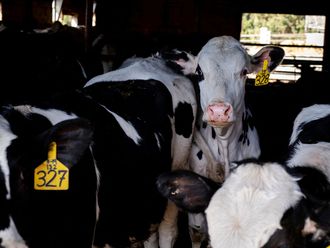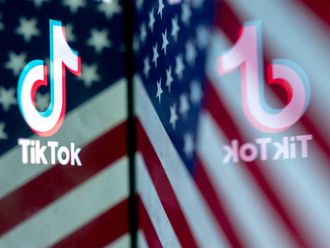MEXICO CITY: In Guatemala, angry citizens marched under pelting rain, undeterred. In Honduras, they carried torches at dusk. A wave of protests against corruption scandals that is sweeping across Latin America has reached Central America.
The presidents of Guatemala and Honduras face allegations that people close to them have conspired to siphon money from threadbare public health systems or manoeuvred to cheat the state out of tax revenue.
Although neither President Otto Perez Molina of Guatemala nor President Juan Orlando Hernandez of Honduras has been directly accused, growing numbers of protesters are demanding their resignations.
Central Americans are no strangers to such malfeasance, of course. Former presidents and their associates in Costa Rica, Nicaragua and Guatemala have been tried for corruption by their successors. An inquiry in Panama into former President Ricardo Martinelli’s government is drawing a wide net around his allies, and he has fled the country.
But the street protests in Honduras and Guatemala are directed at presidents who are still in office — and they are being driven by grass-roots groups.
Many of the protesters are from the middle class, deeply plugged into social media and aware of the anticorruption protests shaking presidents in Brazil, Chile and Mexico.
“It’s a strange sensation people have, a feeling of liberty that did not exist before,” said Edgar Gutierrez, who heads a research institute at the University of San Carlos in Guatemala City.
“The consciousness of citizen power has expanded,” he said, describing how three generations of families turned out to march. If people do not demand change, he said, “the politicians will never do it, nor will the economic elites.”
The leaders of Guatemala and Honduras have become targets of a broader frustration fed by the conviction that there is little to stop well-connected business groups and politicians from conspiring to skim off their states’ scant resources.
Thelma Meja, a Honduran journalist, said: “People want resounding answers. They don’t want half-answers. The peak of tolerance for corruption has reached its limit. Citizens are just fed up.”
Protesters filled the streets of Tegucigalpa and other Honduran cities Friday evening and marches are scheduled for the weekend in Guatemala.
In Guatemala, outrage over two corruption scandals has fuelled protests since the end of April, when an international prosecutors’ panel backed by the United Nations that has been working with the attorney general’s office uncovered a scheme to charge lower customs duties in return for bribes.
In Honduras, protesters have focused on a corruption scheme in the Honduran Social Security Institute in which the former director and top officials have been accused of assigning inflated contracts worth some $200 million to phantom companies. Some of that money went to Hernandez’s National Party.
The scandals come as the Obama administration has asked Congress to grant $1 billion (Dh3.67 billion) in aid to El Salvador, Guatemala and Honduras to help fight gang violence that has sent tens of thousands of children fleeing north with hopes of reaching safety in the United States.
The corruption scandals make it “just unavoidable that it’s going to make people sceptical about sending large amounts to Central America,” said Eric L. Olson, an analyst at the Wilson Institute, a Washington research organisation, who follows the region closely.
But, he said, aid is needed to address the problems that have brought protesters out into the streets. “The best way to respond to corruption is more transparency, more accountability, supporting unions, a free press, civil society,” Olson said.
Pressure from the protesters in Guatemala led to the resignation in May of Vice President Roxana Baldetti, whose top aide has been charged in the customs bribery case and remains a fugitive. Perez Molina also removed several ministers.
The UN panel involved in the case, known by its Spanish acronym CICIG, was set up to help Guatemalan prosecutors and judges devise a justice system that could overcome entrenched corruption.
The second case, which emerged in late May, involved a $15 million contract for dialysis at Guatemala’s social security institute that was awarded to a company with no experience, prosecutors said, in exchange for a bribe. They said faulty care led to the deaths of at least five patients.
Among those accused in the case is Juan de Dios Rodriguez, the president of the social security institute and the president’s former private secretary.
The scandal has unfolded as Guatemala prepares to hold presidential elections on September 6, and Perez Molina has vowed to serve out the rest of his term, which ends in January. But on Wednesday, the Supreme Court ruled that Congress could begin proceedings to decide whether to remove his immunity from prosecution.
“The agony of the regime will continue and the next government will have scant credibility,” said Gutierrez, who pushed to set up CICIG almost a decade ago when he was Guatemala’s foreign minister. “There is a rejection in urban circles of all the parties.”
In Honduras, a reporter revealed last month that copies of checks were written by the phantom companies to the campaign commission of Hern á ndez’s National Party, money that appears to have funded his 2013 presidential campaign.
The Honduran Congress set up a multiparty commission to investigate the case, but diluted the impact by adding past allegations of corruption against politicians in other parties. Meanwhile, the prosecutor on the social security case received death threats and was given a diplomatic post in Paris.
A congressional report, released last week, found checks for $190,000 (Dh697,870) made out to the national party from companies involved in the social security scandal. Hernandez appeared to admit that the National Party had received the money by promising reporters that it would be returned. But he said that he had not known about the campaign checks.
(STORY CAN END HERE. OPTIONAL MATERIAL FOLLOWS)
Honduran society has been deeply divided since a 2009 military-civilian coup. As president, Hernandez has moved to consolidate his control over many of the country’s institutions, replacing four members of the Supreme Court as well as the attorney general.
Dana Frank, a historian at the University of California, Santa Cruz, who is a critic of the Honduran government, said the protests were a response to the degeneration of the rule of law since the coup, which has led to broad impunity for corruption in the government and the police.
It is too early, analysts say, to know how the scandal will hurt Hernandez, whose hand-picked Supreme Court judges overturned a ban limiting presidents to one term. But the scandal appears to have increased support for opposition parties, particularly an anticorruption party led by a former television host, Salvador Nasralla.
Last Friday, protesters bearing torches marched to the UN offices in Tegucigalpa to request a Honduran version of CICIG, a demand that Hernandez has rejected.
“What we don’t know is who will channel the indignation to transform it into change,” said Meja, the Honduran journalist. “You don’t see a government interested in dialogue. The government isn’t listening to the clamour of the street.”
—New York Times News Service












